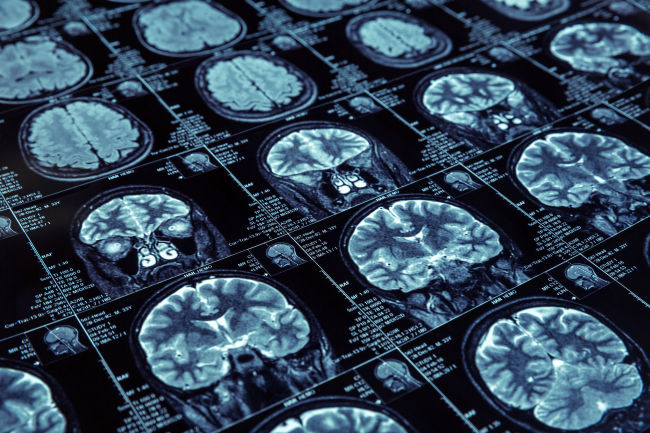Korea forms new regulatory guidelines for AI, big data-based medical devices
By Sohn Ji-youngPublished : Nov. 23, 2017 - 16:05
South Korea’s Ministry of Food and Drug Safety said Thursday it has established formal approval criteria for the new generation of medical devices leveraging artificial intelligence and big data.
By clarifying for the first time what type of products can be considered AI or big data-based medical devices, rather than conventional software, the guidelines are expected to help companies build their products more efficiently and in compliance with local regulations, the ministry said.
According to the ministry, software developed for the diagnosis, treatment and prevention of individual patients’ illnesses can conventionally be categorized under medical devices.
For instance, devices that make use of biological signals measured via electroencephalograms or electrocardiograms, to offer supportive information for disease diagnostics and treatment would constitute a medical device.
This includes software that analyzes lung scans to determine the onset or status of cancer, products that look at electrocardiogram results to diagnose or predict arrhythmia and software trained to predict skin cancer by analyzing skin lesion images, the ministry said.
By clarifying for the first time what type of products can be considered AI or big data-based medical devices, rather than conventional software, the guidelines are expected to help companies build their products more efficiently and in compliance with local regulations, the ministry said.
According to the ministry, software developed for the diagnosis, treatment and prevention of individual patients’ illnesses can conventionally be categorized under medical devices.
For instance, devices that make use of biological signals measured via electroencephalograms or electrocardiograms, to offer supportive information for disease diagnostics and treatment would constitute a medical device.
This includes software that analyzes lung scans to determine the onset or status of cancer, products that look at electrocardiogram results to diagnose or predict arrhythmia and software trained to predict skin cancer by analyzing skin lesion images, the ministry said.

Products used for health maintenance or for automatically searching through archives of medical information and treatment options are not considered medical devices, the Korean health regulator said.
Such would include products that aid health insurance processing, health maintenance gadgets used for exercise and daily life, devices built for research purposes by academic institutions as well as products that help doctors shift through medical records and supportive materials.
The ministry will also remain flexible to account for the novelty of the artificial intelligence and big data-based medical device sector. Even for products that are not categorized as medical devices according to the aforementioned criteria, the ministry can make exceptions by considering global industry trends and approval cases, it said.
Korea’s efforts to devise more concrete approval standards come as a growing number of companies have set out to develop next-generation medical products that leverage machine learning, an artificially intelligent mechanism to train computers, and medical big data.
So far, Korea has not approved any AI or big data-based software designed for use by the medical community as a formal medical device, according to the ministry.
“With this new set of guidelines, patients will be able to receive wider and more accurate diagnostic and treatment options, while product developers will be able to cut down on the costs and times needed for developing and commercializing their devices,” it said.
By Sohn Ji-young (jys@heraldcorp.com)









![[From the Scene] Monks, Buddhists hail return of remains of Buddhas](http://res.heraldm.com/phpwas/restmb_idxmake.php?idx=644&simg=/content/image/2024/04/19/20240419050617_0.jpg&u=20240419175937)





![[From the Scene] Monks, Buddhists hail return of remains of Buddhas](http://res.heraldm.com/phpwas/restmb_idxmake.php?idx=652&simg=/content/image/2024/04/19/20240419050617_0.jpg&u=20240419175937)

![[KH Explains] Hyundai's full hybrid edge to pay off amid slow transition to pure EVs](http://res.heraldm.com/phpwas/restmb_idxmake.php?idx=652&simg=/content/image/2024/04/18/20240418050645_0.jpg&u=20240419100350)

![[Today’s K-pop] Illit drops debut single remix](http://res.heraldm.com/phpwas/restmb_idxmake.php?idx=642&simg=/content/image/2024/04/19/20240419050612_0.jpg&u=)